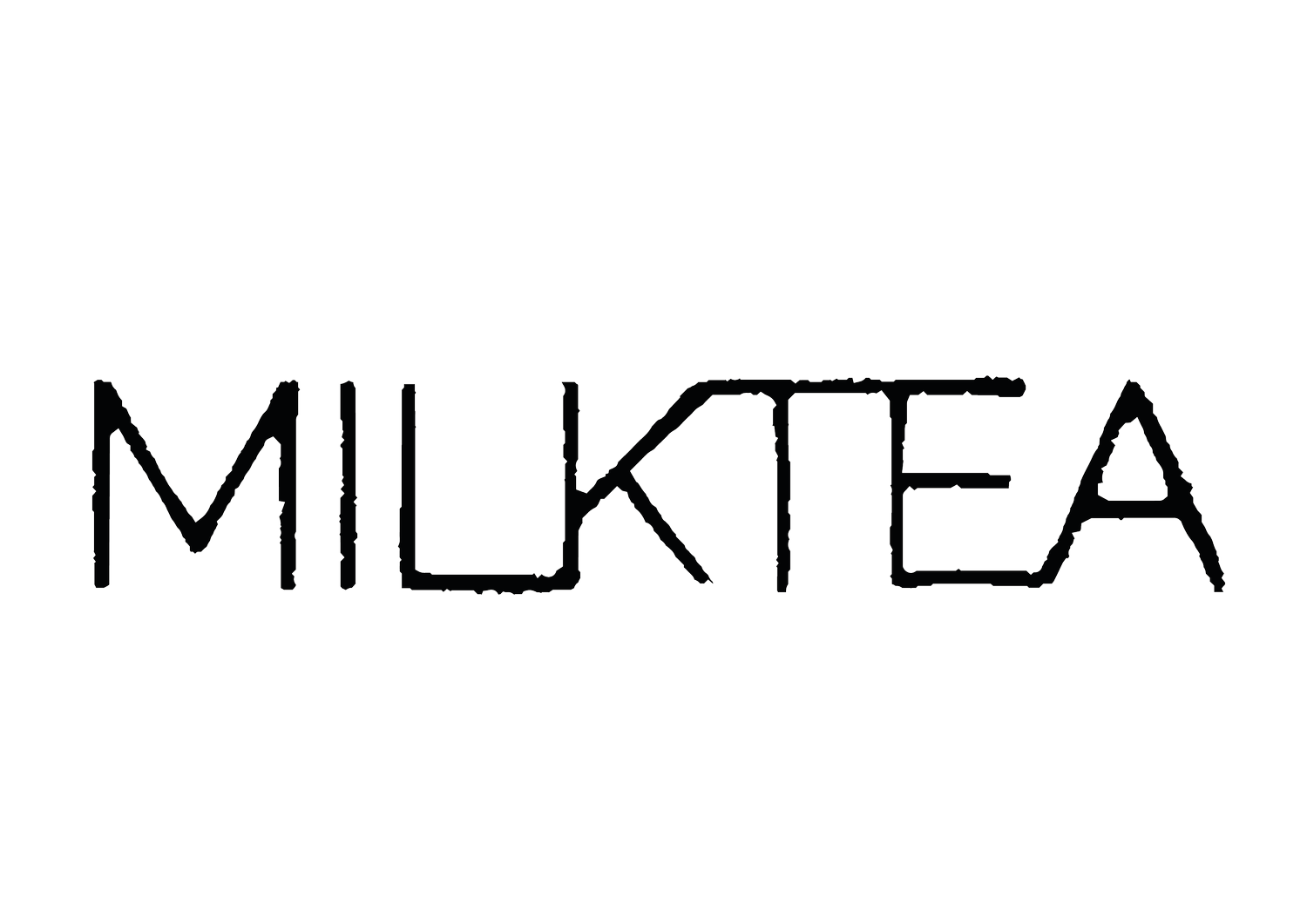Pre-Covid-19, I would often head to HCCS (Hackney Chinese Community Services, now renamed ESEACC) when I was part of their management board—for meetings, the lunch club, or simply to hang out. The old centre was just off Mare Street. On this particular day, as I was heading home, I noticed a sign in the window of London Starlight, a Vietnamese grocery store, advertising the sale of cassettes, CDs, DVDs, videos—something to that effect.
Excited, I asked the middle-aged man, always in a full tracksuit and Real Madrid top. He retorted in his deep voice: “Không ai nghe băng đĩa nữa đâu, mọi người nghe hết trên mạng rồi.”
I was not sure what I was expecting. Perhaps that I would unearth unloved musical gems, discarded in a dark corner because listeners had moved online in the algorithmic age. That something profound could still be found within these outmoded musical mediums. Alas, I packed my groceries—and my grief.
Whenever my partner and I travel, there are two things we always do. First, we eat Vietnamese food. Sometimes it’s unsuccessful. On a trip to Mallorca, we crossed the island chasing a craving to a place called Bar Vietnam, run by a bubbly, cheerful woman from Tiên Giang. She had married into a family of Vietnamese migrants who left by boat in the late '70s and settled on the island. She spoke of her teenage daughters no longer accompanying them on yearly excursions back to the Mekong Delta, of missing her family, and of her husband’s difficulty in settling in Spain even after all these years. He was part of the 1.5 generation—born in the homeland, but raised elsewhere.
Unfortunately, they hadn’t served Vietnamese food for a while owing to the cost and difficulty of sourcing ingredients. We had coffee, tea, and chips instead. We didn’t fulfil our gastronomic intentions, but I remember walking away, feeling we had connected, we had shared, that the act of finding Vietnamese food abroad, perhaps only for a brief moment, nourished us.
Other times, it’s an act of survival. With Czech cuisine being too heavy for us, we sought refuge in Sapa Market, Prague. This time it was bánh đa cua. A dish rarely served outside of Hải Phòng, where my parents grew up. I find myself occupying an affective ambivalence toward this dish—the idea that a singular idea, object, or food can evoke feelings that are both positive and negative. Family and friends remind me (too often) that it’s Hải Phòng’s speciality—cue eye-rolls. Never slurped outside the port city, they would confidently assert. When in combative mode, I retort that it is sold and served in Hà Nội, London, and other shores Hải Phòngers have crashed upon. The dish, I find, can infuriate me but also delight me.
The second thing we do on our travels is seek out music or record shops. Depending on my energy levels, it’s easier or harder than you’d think. At Sapa Market, I encountered a shop that still sells CDs. Having battled the dust, I found what I was looking for. The cashier marvelled at it like it was a fossilised relic and exclaimed: "Ua niu wây tua, hay thế!"[1]—reading off the title delicately. I'm about to question as to why she's never actually seen the stock, perhaps she’s a new employee, perhaps she’s a fan, but decided against it. Perhaps I should have asked, why did she find this CD so cool?
The Sino-Vietnamese tensions along the border in the late 1970s triggered a wave of migrants to the UK, many arriving via Hong Kong under British rule. Against the backdrop of Thatcherite politics, where in private Thatcher opposed giving homes to Vietnamese over “white citizens,” it was William Whitelaw (Home Secretary) and Lord Carrington (Foreign Secretary) who pushed the government to accept refugees [2,3].
Still, limitations abounded. The government adopted a “front-end loading” policy: fund the first phase of resettlement and assume the need for support would quickly end. Another policy was dispersal, meant to avoid overloading any one local authority. We are told dispersal was to prevent “ghettos,” to encourage integration, and avoid overburdening local services. Yet it quickly transpired that scattering Vietnamese across the British Isles failed [4]. In Vũ Khánh Thành’s memoirs (founder of the An Việt Foundation), he recounts how seven young men were resettled at different times in Ottery St Mary in Devon—and within weeks, six had returned to the camp, suitcases in hand, saying they couldn’t live there [5].
By the mid 1980s, British-Vietnamese migrants activated their agency once again, they chose to leave their new homes, off to the bigger cities, in what has come to be known as the secondary wave of migration. In 1985, the government declared dispersal policy a failure. I don’t think any better example of a truism could exist.
To understand why Vietnamese communities have clustered in places like Hackney or Deptford, especially during that secondary wave. The oft repeated trope is that the Vietnamese are communal people. It wasn’t until Jack Shieh, former director of Vietnamese Mental Health Services, explained his own story that I grasped what it truly meant.
Jack had been resettled in Peterborough in the 1980s. He spoke about wanting to get rice, the jasmine variety, a core but difficult to attain staple It was only by befriending a local Chinese takeaway—he speaks many Chinese dialects—and convincing them to bring back an extra sack of rice from London’s Chinatown, that he could finally cook something familiar. One could only imagine the effort it took to get nước mắm, đậu tương, or bánh phở.
It is powerful to have the agency to cook the foods that you are familiar with. Especially when the environment around you is unfamiliar.
Reading Jenny Lau’s An A-Z of Chinese Food , I came across one of my favourite definitions of home: it tastes like the character 家—gia in Vietnamese, jiā in Mandarin. The character is composed of 宀 (miên or mián—roof) and the radical 豕 (pig) [6]. It also forms part of the compound word gia đình/jiātíng, which means family.
And what about music? The character for that is 樂—nhạc in Vietnamese, yuè in Mandarin. It can also mean happy—lạc, lè. So, if we’re being generous: the ideal home is one with food, music, and happiness. And who better to enjoy such an occasion than with your family or community.
When I buy second-hand books, be granted a pre-loved CD, or devour the crates for vinyl, it's the items with personal messages I cherish most. My mother used to carefully mark her name in cursive on the top-right corner of her CDs. Around the time I co-hosted a show on SOAS Radio, I asked where she got them. “Sài Gòn, 1998,” she said. The second—and last—time we went as a whole family, visiting my father’s older brother. This challenged my assumptions about nhạc hải ngoại (overseas Vietnamese music) and its circulation in Vietnam. At the time I believed this music to be banned back then. Perhaps they were. But the joys of listening to music outweighed the risks. Some answers I may never know. So I speculate: who brought it to Vietnam? How was it shared? What life did it previously live?
What is it about music that draws migrants in so deeply? Why is it such a popular form of art to convey joy, love, or profound loss? Yes, it’s the sound of a familiar voice—voicing nostalgia for the homeland into new homes, pouring emotion into a pop song. Yes, it’s possible to be momentarily transported back to the homeland for the length of a track. If you were too young to remember quê hương—like the 1.5 generation, caught between your parents’ memories and a host country that doesn’t quite accept you—Vietnamese New Wave could be an outlet. Yes, it’s true that music endures as a permanent notation when our histories, our voices have often been ephemeral. Music has been a way to connect, to escape, a way to just be. And yes it’s true, I’ve written about all this before, once satisfied with the explanations [7]. But perhaps no longer.
I rarely get time to ponder the pull that archives and memory work has on me—or how this interacts with my interest for music, my own migration history, and by extension, that of my ancestors. Recently I have been fortunate to access stories told by Vietnamese migrants themselves in their own voice, their own language. I cherish them, whether that be through conversations at the luncheon clubs, a blog about the experiences of passing through Hong Kong [8], or negotiating translations of self-published poetry from the An Việt Archives [9].
Sometimes, a wave of panic surges within me—what if these stories never enter the archive?
“But at the end of the day, memory and imagination have to be archived separately, just as waves must always leave the beach. Because otherwise, people couldn’t go on living … [t]his is the price humanity must pay for being the only species with the ability to record memory in writing.”
— Wu Ming-Yi, The Man With the Compound Eyes
Which brings me back to why.
Now that my partner and I have eaten our fair share of holidays. And I have found new ways to find harmony with the music. Or learnt how to empathetically perceive migrant stories.
What we must remember is this: no beach, no matter the island, can ever hold the waves. The waves will always return to the shore, and the waves will always return to the sea.
Rather than trying to hold them, perhaps we must simply be there—to be present, and to experience the waves as they return, again and again.
No Beach, No Matter What The Island,
Can Hold the Waves
by Cường Minh Bá Phạm
As part of MilkTea’s reflection on the 50th anniversary of the end of the Vietnam War, we commissioned Cường Minh Bá Phạm share his thoughts on this huge milestone.
“No beach, no matter what the island, can hold the waves…
[t]his was a maxim and an admonition. It would undoubtedly also count as a truth, even under scientific examination. Waves could not stay on a beach. There was often a fine line between proverbial wisdom and stating the obvious, between a truth and a truism.”
— Wu Ming-Yi, The Man With the Compound Eyes
Cường Minh Bá Phạm works between / in / nearby / at the intersections of sound, community, and archives.
[1] Niu ưây tua is a Vietnamese transliteration of New Wave Tour. A CD featuring Tommy Ngô, Trizzie Phưong Trinh, Thái Tài, Lynda Trang Đài, and Henry Chúc. Released by Thúy Nga in 2015.
[2] The National Archives, Kew - Prime Minister’s Office, PREM 19/130, “Vietnam. Vietnamese Refugees in Hong Kong; Resettlement in UK; Part 2,” June 15, 1979. http://discovery.nationalarchives.gov.uk/ details/r/C1152209.
[3] The National Archives, Kew, CAB 128/66/3, “Conclusions of a Meeting of the Cabinet Held at 10 Downing Street on Thursday 24 May 1979,” May 24, 1979. http://discovery.nationalarchives.gov.uk/ details/r/C10372025.
[4] Resettled Spaces: Examining the Home / Các Không Gian Tái Đinh Cu: Tìm Hiêu Khái Niêm Nhà https://filedn.eu/lm3SibFgrw4HK1NttjnPb1Y/Resettled_Spaces_Print.pdf
[5] Vũ Khánh Thành, and Puryear, Christina. 2016. Catholic with Confucian Tendencies: The Extreme Adventures of a Vietnamese Refugee. CreateSpace Independent Publishing Platform.
[6] Lau, Jenny. 2025. An A-Z of Chinese Food. London: Renegade Books.
[7] Pham, Cuong. 2017. ‘Yellow Music’. Mekong Review. 1 November 2017. https://mekongreview.com/yellow-music/. Accessible version: https://filedn.eu/lm3SibFgrw4HK1NttjnPb1Y/Yellow%20Music%20-%20Mekong%20Review.pdf
[8] https://hvdic.thivien.net/whv/%E6%A8%82
[9] We recently did a group translation of the poem Biển Đợi by Lê Xuân La taken from the An Việt Archives. You can access the original and the various translated versions here: https://phambinho.notion.site/Speculating-the-Past-into-the-Future-The-Waiting-Sea-Bi-n-i-Translating-Vietnamese-language-b-131de57616fb807b8c68ef0fa2ee9269?pvs=4

